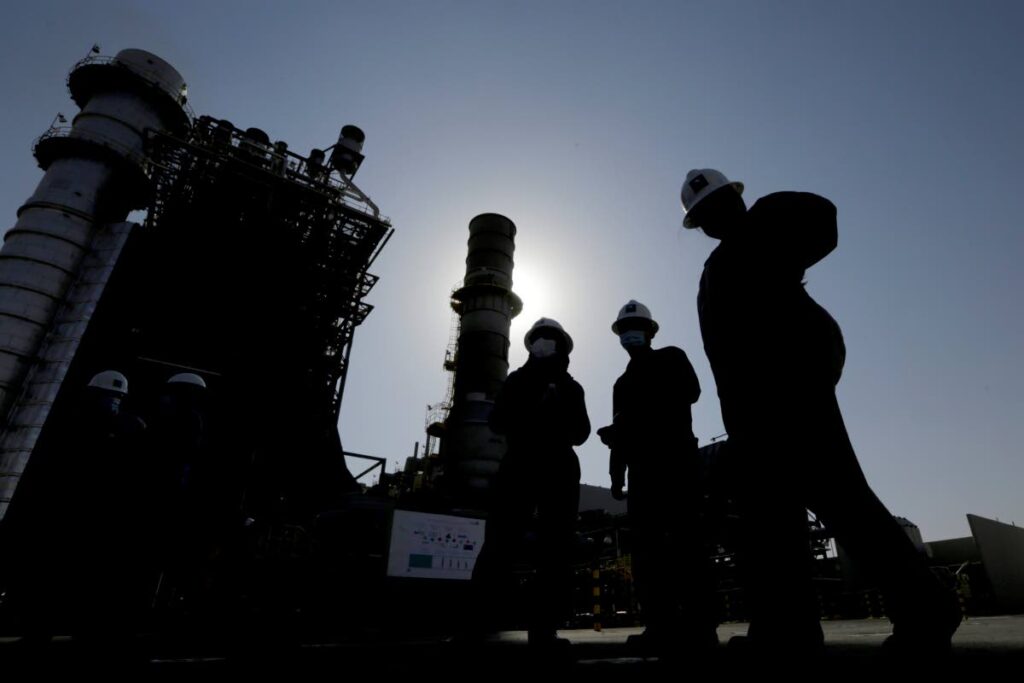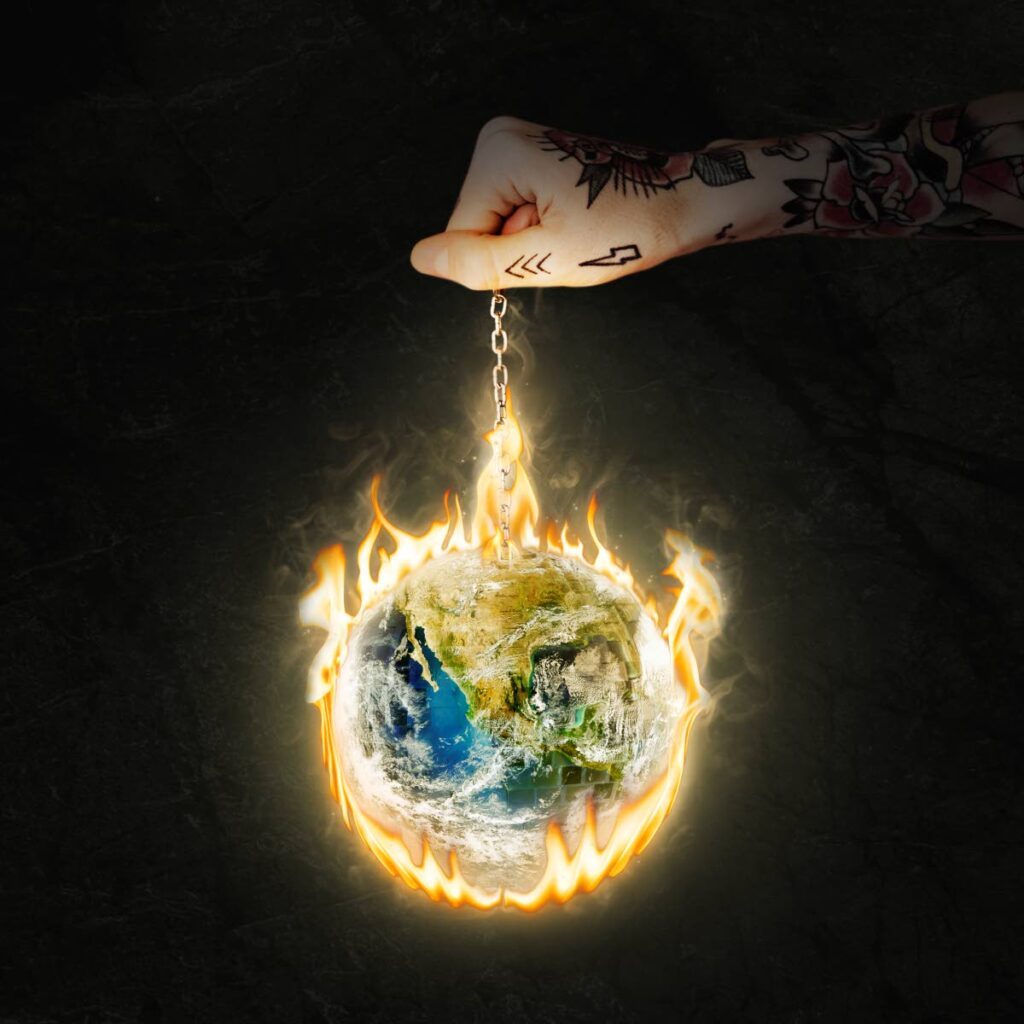CBAM: New rules to the energy game

NO ONE needs to be convinced that the world is getting hotter. They simply have to go outside. And there is other, significant evidence that the world’s temperature is steadily rising as the result of human activity, through greenhouse-gas emissions.
As a result, the world is experiencing extreme temperatures, reducing snow cover, melting polar ice sheets and glaciers, and causing heavy rainfall, stronger hurricanes, rising sea levels, floods, droughts, colder winters and other severe, previously unusual weather events.
The heat also affects plants and animals’ habitats – expanding some and shrinking others.
Several bodies have united to reverse the trajectory of global temperatures, including the 196 countries that ratified the Paris Agreement at the 21st annual UN Climate Change Congress of the Parties (COP 21) in 2015. The Paris Agreement is a legally binding treaty on climate change with the aim of strengthening the global response to rising temperatures, chiefly through the reduction of greenhouse gas. The European Union (EU) is at the forefront of this effort, making promises to become the world’s first climate-neutral continent by 2050.
But for all the deliberations and commitments, the world has got hotter and carbon emissions continue to rise.
Statista, an online portal providing data on the global digital economy, industrial sectors, consumer markets, public opinion, media and macroeconomic developments, showed global emissions are at an all-time high, at 37.55 gigatonnes of CO2. (A gigatonne is 1,000,000,000 tonnes, and is often used when discussing human carbon-dioxide emissions. CO2 is the chemical formula of carbon dioxide, earth's most important greenhouse gas: it absorbs and radiates heat.)
The Carbon Border Adjustment Mechanism (CBAM) is a measure to control carbon emissions through a fair-value price on specific commodities, based on the amount of carbon produced in making them. These include electricity, cement, fertilisers, aluminium and iron and steel.
As an oil-and-gas economy, TT depends heavily on oil and gas exports. Also, as a leader in petrochemical exports, CBAM will affect how TT trades with the EU, and may already be having an effect as countries wanting to avoid stiff penalties when trading with the EU need to begin reporting their carbon emissions, under a policy put into effect in October 2023.
As the region continues on its own energy journey, it is now imperative that it learns and adapts to the new rules.
Why is CBAM needed?
The 2023 global climate report from the US National Oceanic and Atmospheric Administration (NOAA) said every month of 2023 was ranked among the seven warmest months on its records. The second half of the year, from June-December, was the hottest on record.
The NOAA said global temperatures were more than one degree C above the long-term average.
Earth's temperature has risen by an average of 0.06 C per decade since 1850. The rate of warming since 1982 is more than three times as fast.
Coming out of the Paris Agreement, the UN set long-term goals to guide all nations to reduce greenhouse-gas emissions, periodically assess collective progress towards achieving the purpose of the agreement and provide financing to developing countries to help their attempts to mitigate climate change.
This effort is most important to the Caribbean. While the effects of climate change are felt worldwide, the Caribbean has faced the brunt of the changes as small island developing states, with hurricanes and extreme weather conditions decimating islands and leading to significant losses in several areas.
But while the Paris Agreement is legally binding and requires monitoring and reporting of carbon emissions, it does not have the ability to force a country to reduce emissions.
Other countries can use soft measures to encourage countries failing to meet their obligations, but major powers like the US and China are less susceptible to this form of pressure. Ironically larger, more developed countries are the ones most responsible for carbon emissions.
Climate financing has also failed to meet its targets, with some countries reportedly overestimating their spending on climate change and others listing peculiar investments as “climate finance.”
A Reuters report in 2023 revealed that in the US a coastal hotel was granted a loan for expansion in Haiti; Japan financed a coal plant; and Belgium backed the film La Tierra Roja, a love story set in the Argentine rainforest – all under the category “climate finance.”
In 2009, at COP 15, in Copenhagen, developed countries promised to provide US$100 billion annually in climate finance by 2020.
UN Climate Change News reported in November last year that climate-action plans remain insufficient to limit global warming and meet the goals of the Paris Agreement, despite increased efforts by other countries.

CBAM: The new rules of climate action
CBAM is one of Europe’s mechanisms to meet its ambition to be climate-neutral by 2050. The customs union of the EU, in a question-and-answer section on its website, explained that the region could be affected by lax standards of other countries which trade with the EU and, as a result, undermine its climate policies. They described this as “carbon leakage.”
“Such carbon leakage can shift emissions outside of Europe and therefore seriously undermine the EU’s as well as global climate efforts. The CBAM will support the EU’s increased climate ambition and ensure that climate action is not undermined by relocating production to countries with less ambitious policies,” the customs union said.
The CBAM is now in its transitional phase, which runs from October 1, 2023-December 31, 2025.
Importers must determine and document direct and indirect emissions occurring in the course of production. Importers are also required to prepare quarterly reports on emissions.
By 2026, only registered declarants will be allowed to import CBAM goods. Registrants will have to determine direct and indirect CO2 emissions, which will be verified by a testing body, acquire CBAM certificates for imported CO2 emissions from the relevant CBAM authority and prepare an annual declaration for the CBAM goods, including a comparison for the imported emissions.
Unlike the Paris Agreement, these regulations have significant repercussions. Declarants may face penalties ranging between €10 and €50 per tonne of unreported carbon emissions. Missing, incorrect or incomplete CBAM reports could be rectified through the national competent authority (NCA).
At the Sustainable Energy Conference at the Trinidad Hilton between Monday and Wednesday this week, UWI said in a presentation that the UK will also be developing its own CBAM policies, expected to take effect from 2027.
The UK’s CBAM is currently in its consultation phase, but proposes to impose a levy similar to that of the EU that will affect a similar range of products.
Will it be fair?
In his feature address at the sustainable energy conference, Energy Minister Stuart Young knocked the CBAM, saying it will have a negative effect on TT’s economy as well as the economies of small island developing states using the resources they have, carbon-intensive or not, to develop their countries.
“CBAM is a tool they (the EU) believe is being used to clean up the global climate, but again, it is unfair. The reality is, once again, it is going to hit the smaller communities. It hurts countries like TT on our fertiliser production,” he said.
Dr Preeya Mohan, senior fellow at UWI, explained in her presentation some concerns raised by TT energy stakeholders who were interviewed during a study done by UWI and the International Institute of Sustainable Development (IISD) on countries that would be affected by the UK and EU CBAMs and other border carbon-adjustment mechanisms.
One concern raised in the presentation was that the product scope may expand by 2030.
“Stakeholders are very concerned about products such as methanol, LNG, being added to these product scopes. They feel that transparent criteria should be used for product coverage. It should be based on factors like emissions intensity.”
There was also high uncertainty over the amount of tax that may actually be paid. Stakeholders are concerned that tax rates may be high and punitive, especially if default values are going to be adopted, and what will be the highest tax rate paid.
“If we aren’t able to measure our emissions to assess the tax rate, then that default rate will apply.”
Stakeholders were also disappointed that revenue collected under EU’s CBAM would not be used for climate financing for developing states.
“Stakeholders felt that these revenues should be sent back to help us decarbonise.”
Stakeholders also felt that other countries’ historical emissions should also be considered when imposing CBAM regulations and taxes.
“The highest carbon producers are the border carbon adjustment implementers,” Mohan said. “Those with low capacity to decarbonise are countries like ours.”
Stakeholders called for measures such as transparency in taxations, harmonisation of requirements and transfer of technology from developed to developing states as some ways to help comply with the regulations.

Comments
"CBAM: New rules to the energy game"